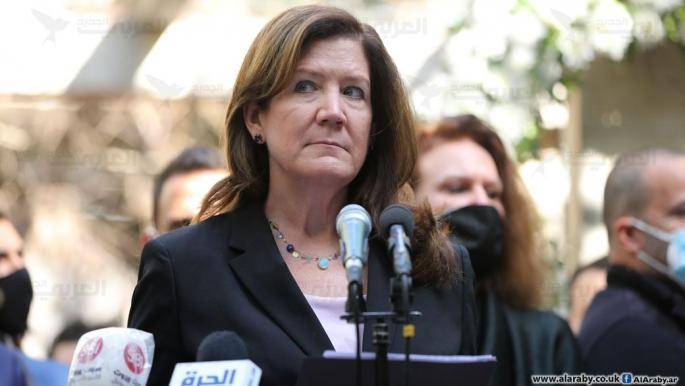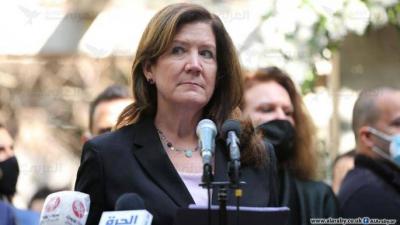U.S. Ambassador Dorothy Shea stated, “I feel encouraged when I hear about the ongoing progress in these regional energy deals,” adding, “It is a long and complex process, and I would just urge people not to believe the naysayers who want to make you think that there is no progress.”
Energy and Water Minister Walid Fayyad met yesterday in his office with Ambassador Shea to discuss the ongoing preparations in the energy sector, particularly related to increasing electricity supply hours. Fayyad noted that he sensed "the same commitment as before from Ambassador Shea in assisting, especially regarding the agreements to import gas from Egypt and electricity from Jordan, and the remaining steps for the final approval of the electricity plan that is on the agenda of the Cabinet tomorrow (today)." He highlighted that "presenting this plan to the public is also a requirement from the funding entities, foremost of which is the World Bank," confirming that "this plan is not politicized and is based on scientific foundations and a guiding framework established by Electricité de France (EDF)."
He added, “The second step concerns securing funding from the World Bank, and the third step involves U.S. administration approvals regarding the implications of the Caesar Act, where the ambassador reiterated their commitment to exclude this project from the Caesar sanctions list.” The discussion also touched on general topics in the energy sector and ongoing security developments worldwide, with Fayyad expressing hope that "security would stabilize in favor of Lebanon and everyone." She remarked, “I have just reviewed some lengthy documents and contracts that require hours of arduous review by lawyers from several parties. I really appreciate the advice that Minister Fayyad and his team received from the World Bank because they are reviewing the best practices in the international arena regarding such arrangements, and we rely on their good counsel whether it concerns topics like the comprehensive plan that the Cabinet gave its preliminary approval to a few weeks ago, and we look forward to continued progress in that, or in terms of tariff structuring and other arrangements to ensure that the electricity sector is operated as efficiently as possible, so that users and consumers—specifically you Lebanese, your hospitals, and your other institutions—can benefit from sustainable electricity. This is not easy, especially at this time, given all the other complications in the world and the disruptions that have occurred in global energy markets due to the Russian invasion of Ukraine, which is unfortunate for various reasons.”




